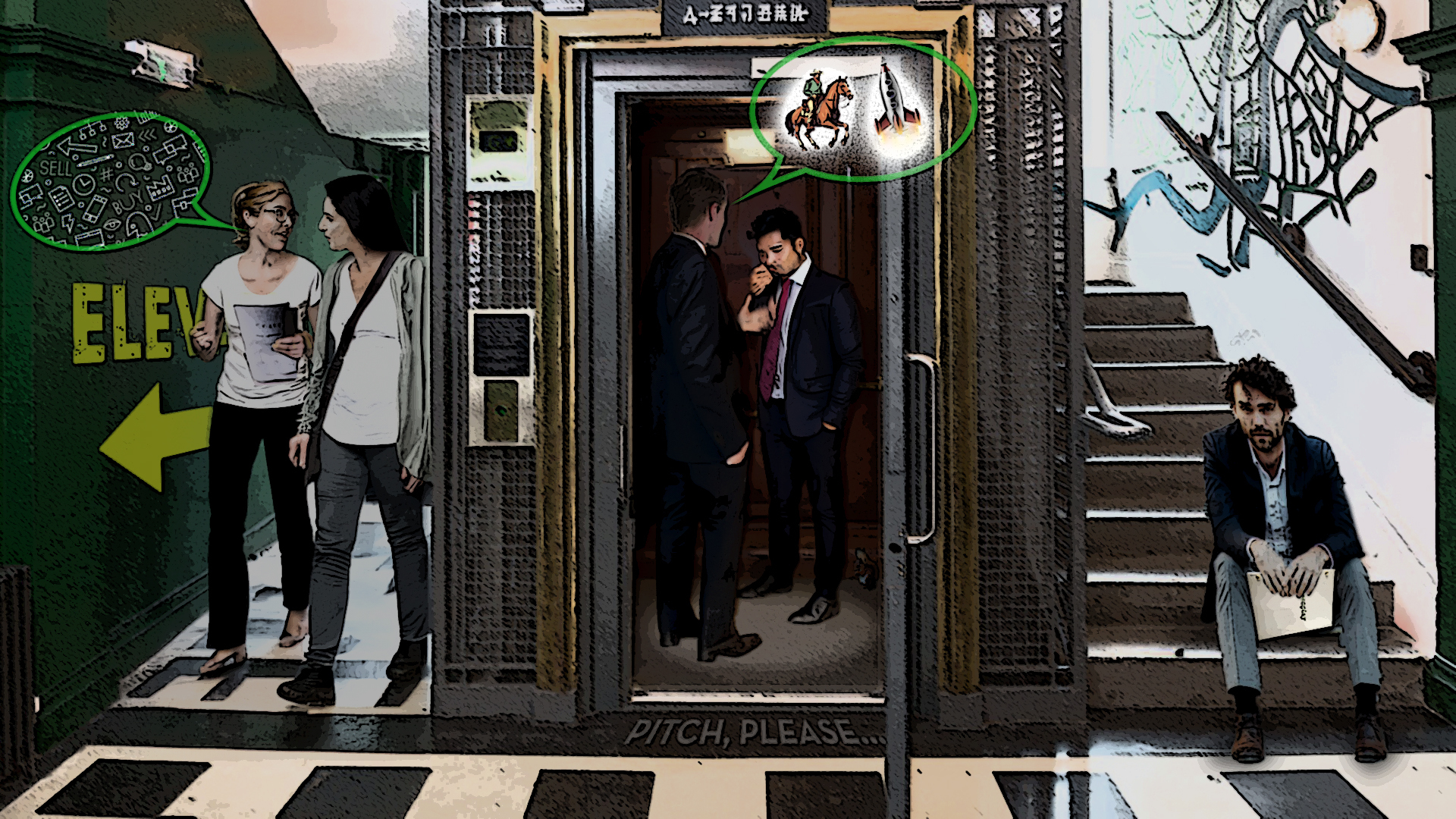Where does your passion as a business really lie? What should the world know you for? We’ve got some big questions on our mind as we prepare for a vision and mission workshop later this week.
We’re working with the board of a ten year old technology company, heading into a new stage of development. The company has a strong track record with a unique product in a niche market and very many clients who love it. The team is already exploring opportunities to expand with new allied products and new partnerships into new territories.
They’re not short on imagining new futures, and the ‘where next?’ possibilities are wide open.
The challenge lies in making a decision about the future they collectively want to work towards. And, from there, in agreeing the mission that is going to support that shared vision.
We’re designing some exercises to help them think this through. This includes some questions that will help the team to articulate their purpose and goals. And some creative activities that will help them unite around shared goals, and feel energised for the path ahead.
And we’ll carve out and protect a creative and positive space where the individuals can share their hopes and ideas, how they feel, what they think and believe, and what they know to be true.
That lets us gather a lot of material we’ll need to craft the new vision and mission. We’ll be listening for the phrases they choose, and the places where the discussions come alive to help us pinpoint the right words to articulate a shared vision and mission that everyone can get behind.
About Vision and Mission
Vision | A future state, aspirational, bold. Where do we want to get to, and how does that change the world around us.
Mission | The specific actions or steps taken to achieve the vision. It’s a map and compass for navigating to the future.
"Imagine what the world would be like without your business in it..."
We’ve set the board a question to think about before we meet. We’ve asked them to imagine what the world would be like without their business in it. A tricky question to answer, but one which we think will help them to articulate the difference they make, and the purpose behind their efforts.
Why do we exist?
Purpose is going to be key to shaping the new vision and mission. Although the goals and markets may change, they should still feel congruent with the organisation’s purpose; a way of deepening and strengthening that purpose, rather than rewriting it.
"Whatever shape it takes, genuine purpose encompasses beliefs and values that are important to you, your stakeholders, and your hoped-for customers. It feels like a cause worth fighting for, something that’s outside of, and bigger, than you. Purpose is what turns a smart business into a great one."
Making a start
However, kicking off with an open-ended and visionary ‘where do we want to be in five years?’ might get everyone leaping off from a different starting point. So it could be that straightforward SWOT analysis questions are a better place to start.
Talking around…
- What do we currently do?
- What should we be doing?
- What are our key strengths?
…will ground the team in the current state together, before heading off to think big and get imaginative. Diving into the positive aspects of the team and its potential first will get people onto the same page, and that’s important for this exercise.
Some questions to help frame the vision
According to Simon Sinek, vision is the aspirational view of the future that an individual or organisation seeks to create. It is about imagining what success looks like in the long term and articulating a clear picture of the desired outcome.
A vision statement communicates the overarching purpose and direction of the organisation, inspiring stakeholders to work towards a common goal. A compelling vision is not about making money or achieving short-term objectives but rather about making a positive impact and contributing to something greater than oneself.
Try these questions, to help shape your vision
What’s the problem we solve? Who do we want to be the hero for? Where would we like to be in five years?
Who do we want to be the hero for? Is a key question for this particular board as one of the factors in their success so far is they know their clients and their challenges inside out. They’re a tech company that delivers excellent and highly responsive client support. (We know it’s excellent, as we’ve been doing some client interviews as part of a wider story telling brief and have some fabulous first hand feedback to share during the workshop.)
Who else could they offer this level of support to? Who do they want to offer this level of support to? What sectors would benefit most from their product? Where can they add the most value? What worlds do they want to become an integral part of?
Questions to frame a mission
Several mission related questions naturally fall out of the hero question. If we decide to target new markets, how do we scale up our client support without losing the human touch? Do we need to make the product simpler/more flexible/more intuitive so that it becomes self-supporting?
Returning to Simon Sinek again, he defines mission as the concrete strategies, values, and behaviours that guide decision-making and daily operations. A mission statement outlines the core purpose of the organisation, detailing what it does, who it serves, and how it distinguishes itself from others in the pursuit of its vision.
And ask yourself these mission related questions
Why are we doing what we’re doing? What difference do we aim to make? How are we going to do what we’re going to do? And what values support us?
All interesting questions. We’ll be looking for some granularity in the ‘How’, including mastery of a technology, expert process, a compelling business model, for instance. And some would wrap values into the How. We like to give them their own space.
We’re expecting a lot of ideas and insights, and it will be down to us to help the board synthesise and prioritise them. We’ll do it by grouping and categorising them according to themes and patterns, and help them rank the ideas according to feasibility, desirability, or impact. We’ll help them to identify the most important and relevant ideas that will form the basis of the team’s new vision and mission.
To finish with a flourish – test yourself on these vision statements from some brands that did OK for themselves. Can you identify the companies?
Spread Ideas
Make the best ice cream, in the nicest possible way
To access the world’s information in just one click
To create a better everyday life for the many people
To help people throughout the world realise their true potential
Which ones resonate with you?
Reach out on reach out to us on email if you’ve any thoughts or questions, or just leave a comment below.






What do you think?